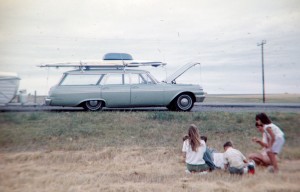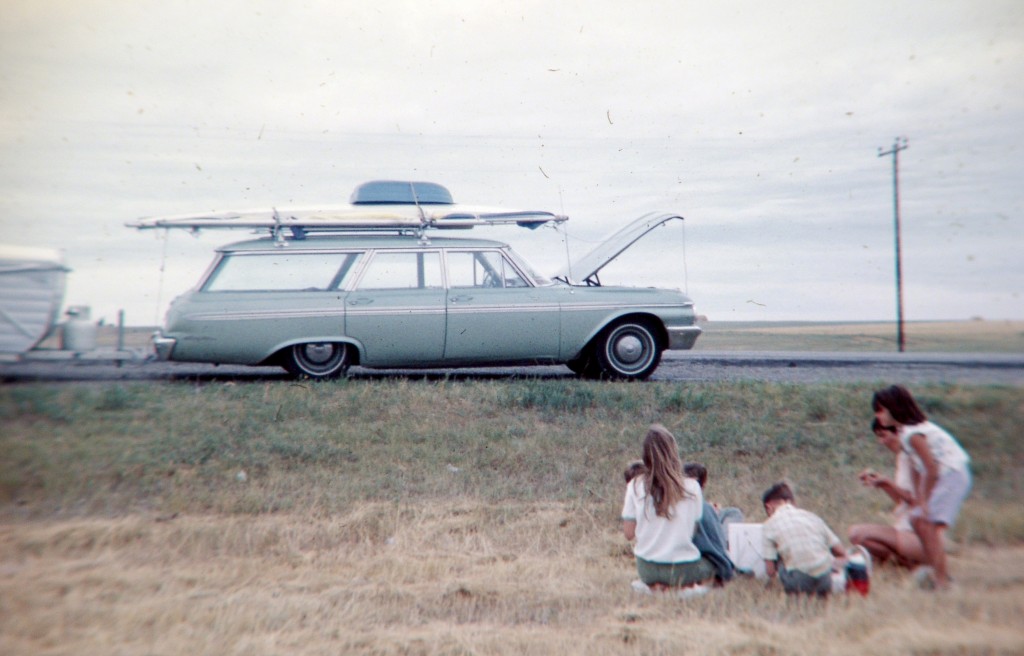I grew up in a family that camped. My father was a pastor who got four weeks of vacation. We took all four weeks at once, camping the whole month of July, mostly in wooded forests next to lakes. We hauled a small Sunfish sailboat on top of our sagging station wagon.
Vacations were a young boy’s fantasy, filled with mysterious forests and stormy seas. Four weeks wasn’t enough. We carried our home wherever we went. It was often hot, sometimes cold, and occasionally rainy. The car always broke down. And I loved it.
I recently heard a quote from the Epistle to Diognetus that resurfaced all those old memories,
The difference between Christians and the rest of mankind is not a matter of nationality, language, or customs. Christians do not live apart in separate cities, speak any special dialect, nor practice any eccentric way of life… [They] conform to ordinary local usage in their clothing, diet, and other habits…
For them, any foreign country is a motherland, and any motherland is a foreign country.
My home away from home
Yes, camping was uncomfortable. The pop-up trailer served as our kitchen, dining room, living room, and four bedrooms, yet this mobile home was smaller than a single bedroom in our immovable house.
Discomfort was just part of the fun. When something went wrong—and the tent loved to leak and the stove just hated to be lit—it was part of the adventure. It was a Fine And Pleasant Misery.
But last week, back home, all three of our cars had problems (a faulty transmission, a gas leak, and a misfiring engine). I was frustrated. Life isn’t supposed to be difficult. It should work.
But is life supposed to work the way I want? It hasn’t for the fifty odd years of my life (I’m fifty-seven, but only fifty of those years have been odd). Why do I enjoy the fine and pleasant miseries of camping while grousing about bringing my car to an auto mechanic?
Because when I camped I expected misadventures, and when I’m home I expect comfort.
And because I always knew camping was my home away from home; an incomparable adventure, yes, but I always knew that soon I’d be back in my real bed in my real home.
We’re missing an important ingredient
The world we live in is broken. Let’s strive to care for it. By all means, we can improve education, build public transport, streamline the tax code, and fix that leaking tent.
But let’s never forget that we’re all just camping. This motherland is a foreign country.
My parent’s generation talked more about heaven than we do. I think it’s because they saw the world’s brokenness more closely. They endured the great depression, had far fewer modern medical advantages, and they saw suffering in World War II that would stagger us.
When they saw all that brokenness, it moved them care for a broken world; but it also moved them to look to a future home. I should think more of my real motherland.
It would give me hope; it would remind me that I’m just camping.
But we mostly ignore tomorrow
In his Pulitzer Prize winning book, The Denial of Death, Ernest Becker observed that modern people pull out all the stops to forget tomorrow. We refuse to acknowledge our mortality. We claw, scratch, and snatch at present “positive thinking.” And we ignore reality. He wrote,
Taking life seriously means that all we do must be done in the lived truth of the evil and terror of life, of the rumble of panic underneath everything, otherwise it’s phony.
No matter how much medical science advances, the mortality rate remains the same. It’s still one hundred percent. We all die. No one escapes life alive. If we ignore tomorrow, we are living phony, cowardly lives.
I bet that wasn’t the pick-me-up you were looking for
Remembering our future death reminds us that this world isn’t home. We are just sojourners, travelers passing through, hikers backpacking the Appalachian Trail.
We can hold this world without holding onto this world; we can live in this world withoutgetting our life from this world. We can be at home without making it our home.
We are strangers in a strange land. Death means any foreign country can be home. The strangeness of life is the oddness of life in a land of death. Because we are made for life.
Paul said, “For we were so utterly burdened beyond our strength that we despaired of life itself. Indeed, we felt that we had received the sentence of death. But that was to make us rely not on ourselves but on God who raises the dead” (2 Cor. 1:8b-9).
Heaven is not for the cowardly
Cowards live phony lives, afraid of what’s outside the door. Of all people, Christians can have courage. Because we know what’s outside that door. In this life we’ll experience everything the world throws at us, broken cars, spats with spouses, wars, rumors of wars, and death.
With one difference. For us, “The tragedy of life is not death. The tragedy of life is what dies inside a man while he lives” (Albert Schweitzer). We shall live forever. This land we call home is a birth canal to the home we were made for. Let’s never let that hope die while we live.
We can be at home in this world precisely because our motherland is somewhere else.
Sam




Leave a Reply